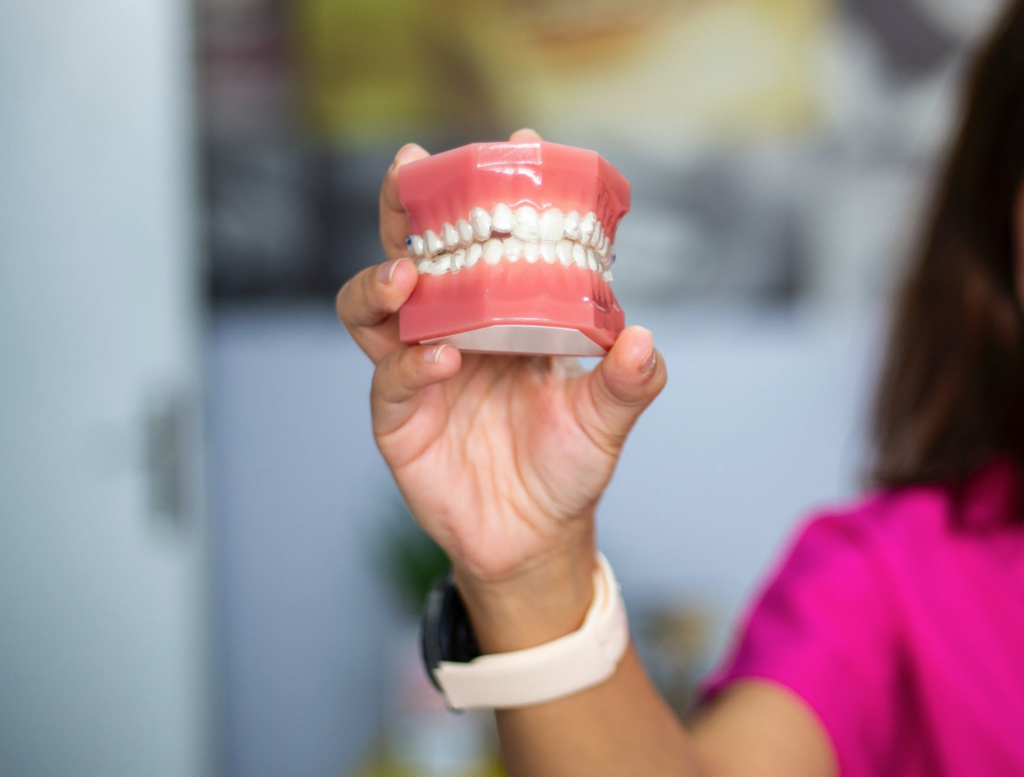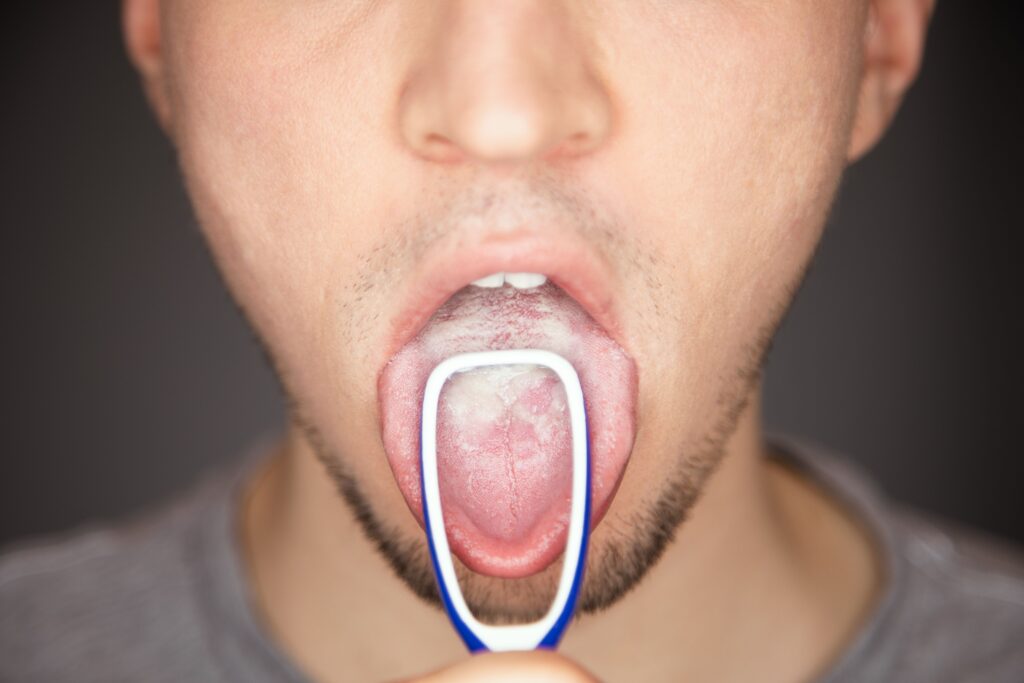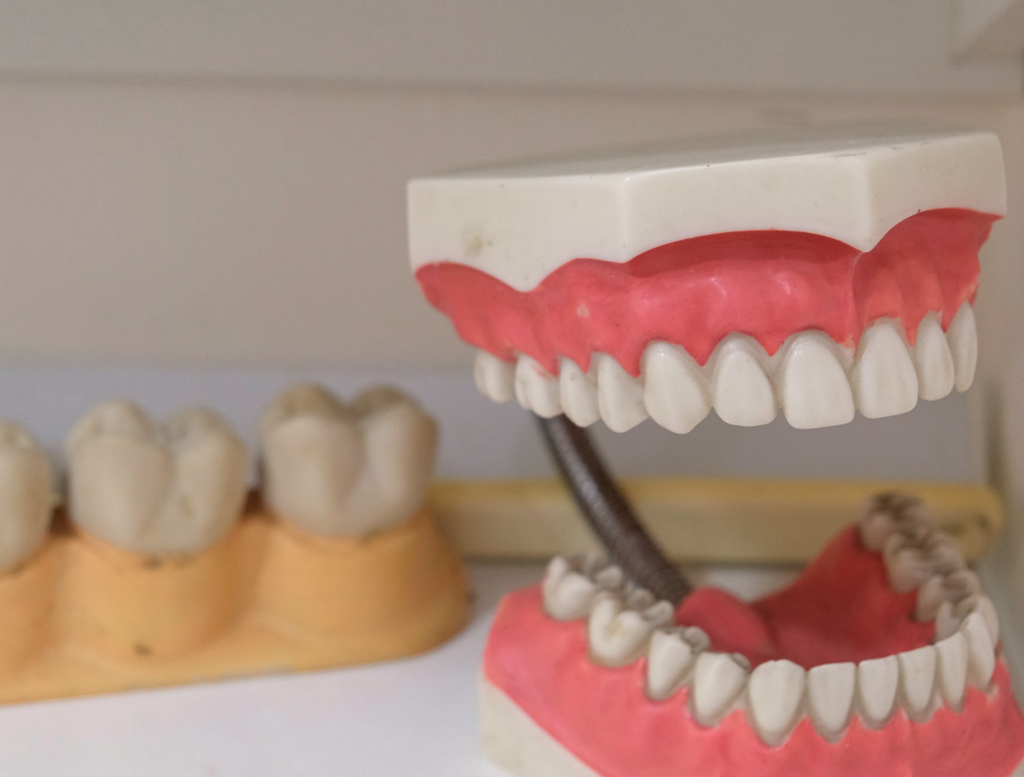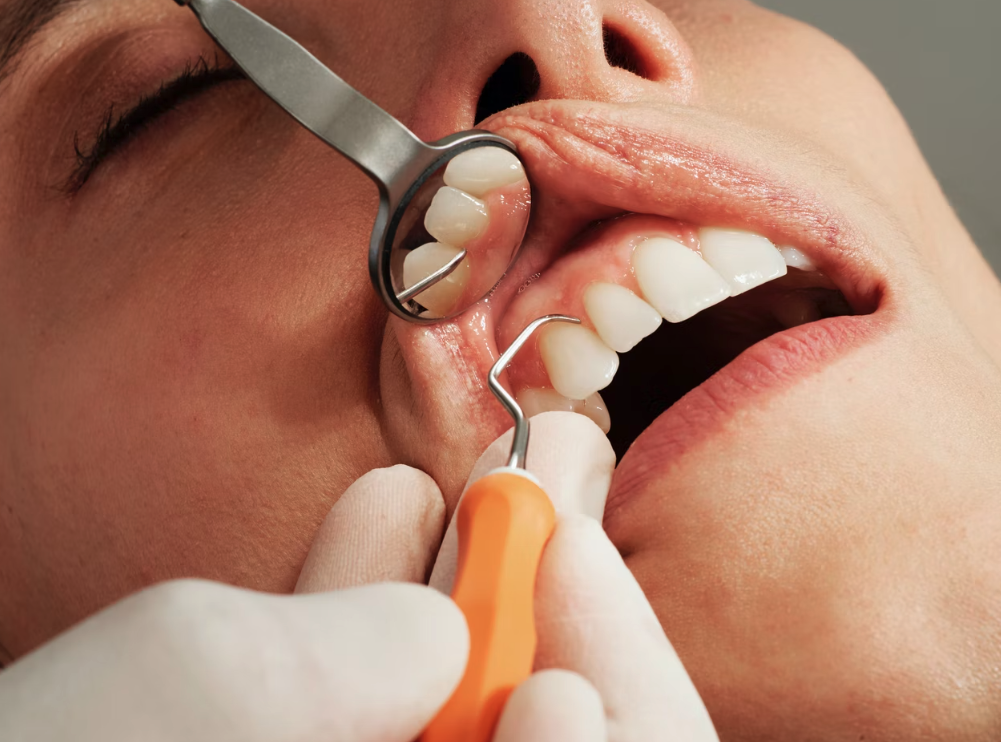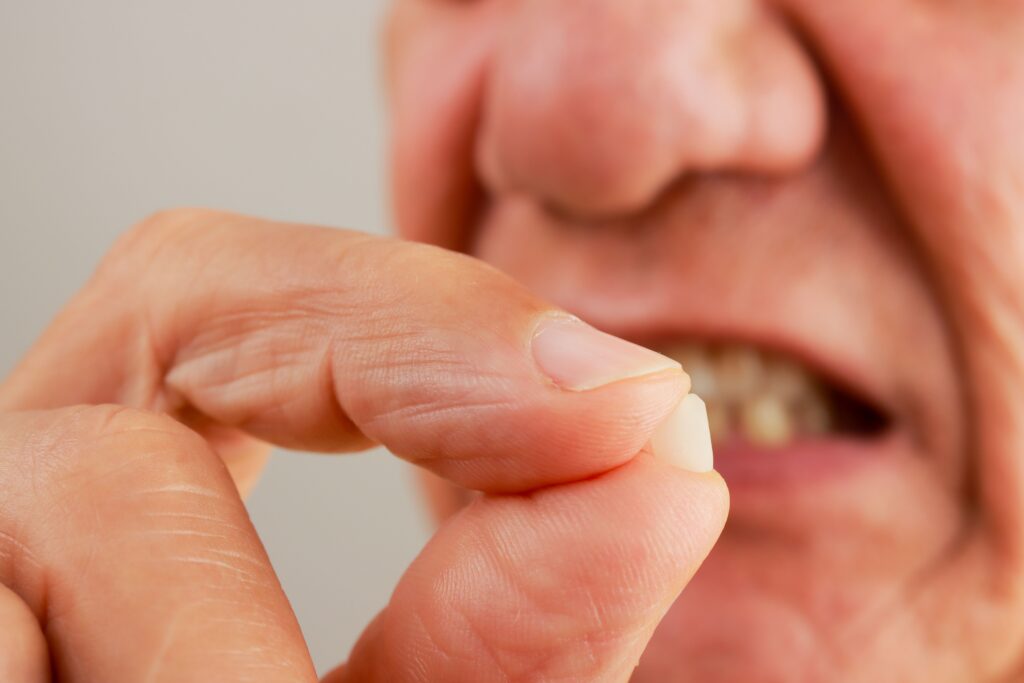Dentures are false teeth that are fitted in the mouth to replace missing teeth. They can be made of plastic, porcelain, or a combination of both.
Dentures may become loose for a number of reasons, such as poor fit, gum disease, or age. Loose dentures can cause pain and difficulty eating and speaking. If your dentures are loose, see your dentist to have them adjusted or replaced.
Reasons For Dentures Being Loose
There are a number of reasons why dentures may become loose over time:
Poor fit
One of the most common reasons for dentures becoming loose is a poor fit. Dentures that do not fit properly can put pressure on the gums and cause them to become irritated. Over time, the gums may begin to shrink, causing the dentures to become loose.
Gum disease
Gum disease can cause the gums to become inflamed and tender. This can make it difficult to keep dentures in place.
Age
As we age, our mouth changes. The gums may shrink, the jawbone may recede, and the teeth may become loose. These changes can cause dentures to fit less securely.
Eating habits
Chewing hard foods, such as candy or ice, can put stress on the dentures and cause them to become loose.
Smoking
Smoking can also cause the gums to shrink, making it difficult to keep dentures in place.
If your dentures are loose, see your dentist to have them adjusted or replaced. Wearing ill-fitting or loose dentures can cause pain and difficulty eating and speaking. In addition, loose dentures can lead to gum disease and other problems.
How to Tell if Your Dentures are Loose?
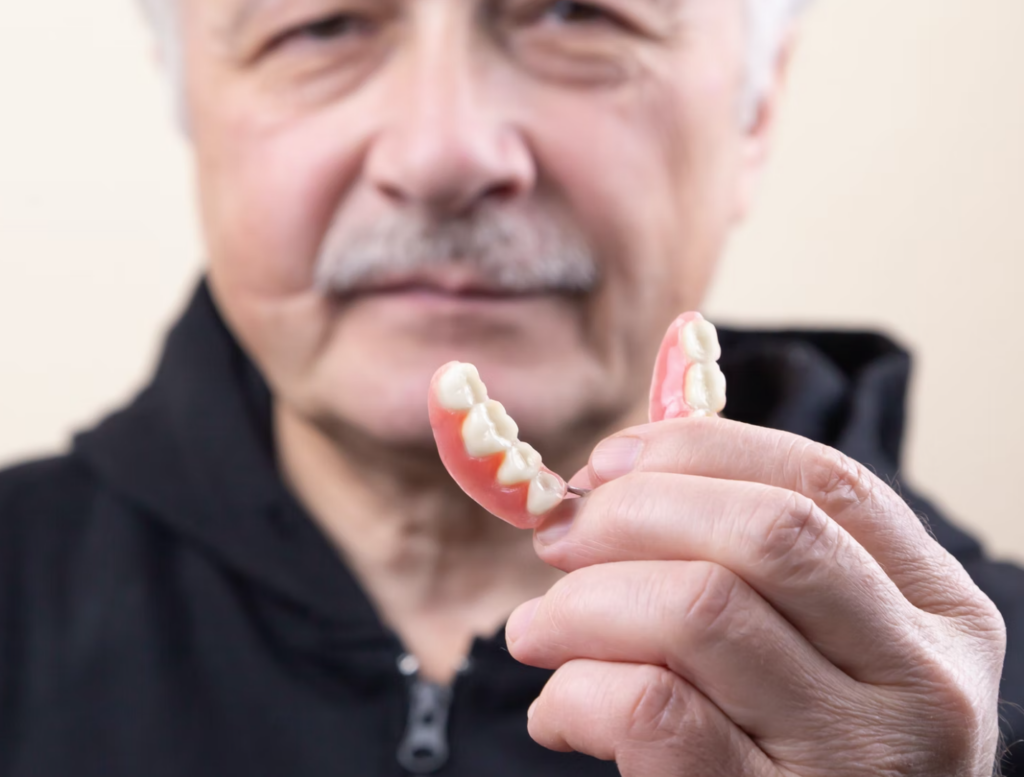
If you’re experiencing discomfort and your dentures feel loose, it’s likely that they need to be adjusted. Here are three ways to tell if your dentures are too loose:
1. Look in the mirror: if your dentures are sliding around or coming out of your mouth when you speak or laugh, they’re likely too loose.
2. Pay attention to your eating habits: if you’re having difficulty chewing or your dentures are causing pain when you eat, they may be too loose.
3. Check for soreness: if your gums are sore or irritated, it’s likely that your dentures are not fitting properly.
If you’re experiencing any of these problems, it’s important to see your dentist or prosthodontist to have your dentures adjusted. Loose dentures can cause serious problems if they’re not fixed, so don’t delay in seeking professional help.
Can Dentures Get Loose When You Lose Weight?
It is possible for dentures to become loose with weight loss. When you lose weight, your body’s fat reserves are depleted, and this can cause the facial muscles to weaken and the dentures to loosen. If you are noticing that your dentures are becoming loose, be sure to see your dentist for a check-up. There are a few things that your dentist can do to help keep your dentures in place, such as adjusting the fit or adding adhesive.
Can Loose Dentures Be Altered?
If your dentures become loose, you may be able to have them altered to fit again. Many denture wearers find that they need to have their dentures adjusted from time to time as their mouth changes shape. If your dentures are only slightly loose, your dentist may be able to fix them with a simple adjustment. If your dentures are very loose, you may need to get a new set.
When you first get dentures, it is normal for them to feel a bit loose. It takes time to get used to wearing them and your mouth will eventually adjust. If your dentures start to feel loose after you have been wearing them for awhile, it is important to see your dentist. Loose dentures can cause sores and infections in your mouth.
If you have a partial denture, it is especially important to keep an eye on how loose it becomes. Partial dentures rely on your natural teeth for support. If they become too loose, they can damage your natural teeth.
How Tight Should Dentures Fit?
Dentures should fit comfortably in your mouth and not be too tight or too loose. If they are too tight, they can cause pain and discomfort. If they are too loose, they may slip out of your mouth or become damaged.
To ensure that your dentures fit well, you should visit your dentist regularly for adjustments. They will be able to assess the fit of your dentures and make any necessary changes.
Can You Keep Dentures in Place Without Adhesive?
It is possible to keep dentures in place without adhesive, but it may be more difficult to keep them in place. Without adhesive, the dentures may move around more and may be less stable. There are a few things that can be done to help keep dentures in place without adhesive, such as using a denture reliner or getting custom-made dentures. Talk to your dentist about what option is best for you.
Another solution to keeping dentures in place without adhesive is to get permanent dentures. This type of denture is held in place by dental implants. This is a more expensive option, but it can provide a more secure fit. If you are considering this option, talk to your dentist about whether or not it is right for you.
Changes in Bone Structure
One of the main reasons dentures can become loose is due to changes in the jawbone structure. After losing natural teeth, the jawbone begins to resorb or shrink. This process can continue over the years, especially if you’ve been wearing dentures for a long time. As the jawbone changes shape, the fit of your dentures can become less secure. This is one reason regular dental check-ups are essential; your dentist can monitor your jawbone health and make adjustments to your dentures as needed.
Health Conditions
Certain health conditions can also impact the fit of dentures. Conditions such as diabetes, rheumatoid arthritis, and other autoimmune disorders can affect your gum health and bone density. For example, diabetes can slow healing processes, leading to gum issues that may cause dentures to fit poorly. If you have a chronic health condition, it’s essential to discuss it with your dentist to ensure that your dentures are properly fitted and adjusted over time.
Medications
Many medications can influence oral health, leading to changes in gum tissue or bone density. Some medications can cause dry mouth, which can make it harder for dentures to stay in place. If you’re taking medications that affect your oral health, consult with your healthcare provider and dentist about how to manage these side effects while maintaining a good fit for your dentures.
Overuse of Adhesives
While denture adhesives can be helpful for keeping dentures in place, over-reliance on them can lead to problems. Excessive use of adhesives can create a false sense of security, allowing wearers to ignore the underlying fit issues. Additionally, using too much adhesive can make it difficult to clean your dentures thoroughly, leading to bacteria buildup, which can contribute to gum disease. It’s crucial to strike a balance between using adhesive and addressing the fit of your dentures.
Regular Maintenance and Care
To prevent dentures from becoming loose, proper maintenance is key. Here are some tips to keep your dentures fitting well:
- Daily Cleaning: Clean your dentures daily with a soft brush and mild cleanser specifically designed for dentures. Avoid using regular toothpaste, which can be abrasive.
- Regular Dental Check-ups: Schedule regular appointments with your dentist. They can assess the fit of your dentures, check for any signs of gum disease, and make adjustments as necessary.
- Follow a Healthy Diet: Eating a balanced diet can help maintain your overall oral health. Avoiding overly hard or sticky foods can also protect your dentures from unnecessary wear and tear.
- Stay Hydrated: Drinking plenty of water helps keep your mouth hydrated, which can aid in creating a better fit for your dentures.
- Avoid Smoking: Smoking can contribute to gum disease and can lead to shrinking gums, which can further affect the fit of your dentures.
Visit Family Tree Dental For New Dentures and Adjustments
If you’re in need of new dentures, or just adjustments to your current set, Family Tree Dental is the place for you. We offer a wide range of services, from new dentures to simple adjustments, so that you can keep your smile looking its best. We know that having a healthy smile is important to you, and we’re here to help.
Our dental offices are located around the Southeastern boarder of Ohio. See all our locations to pick the best spot for you to get a new set of dentures!


